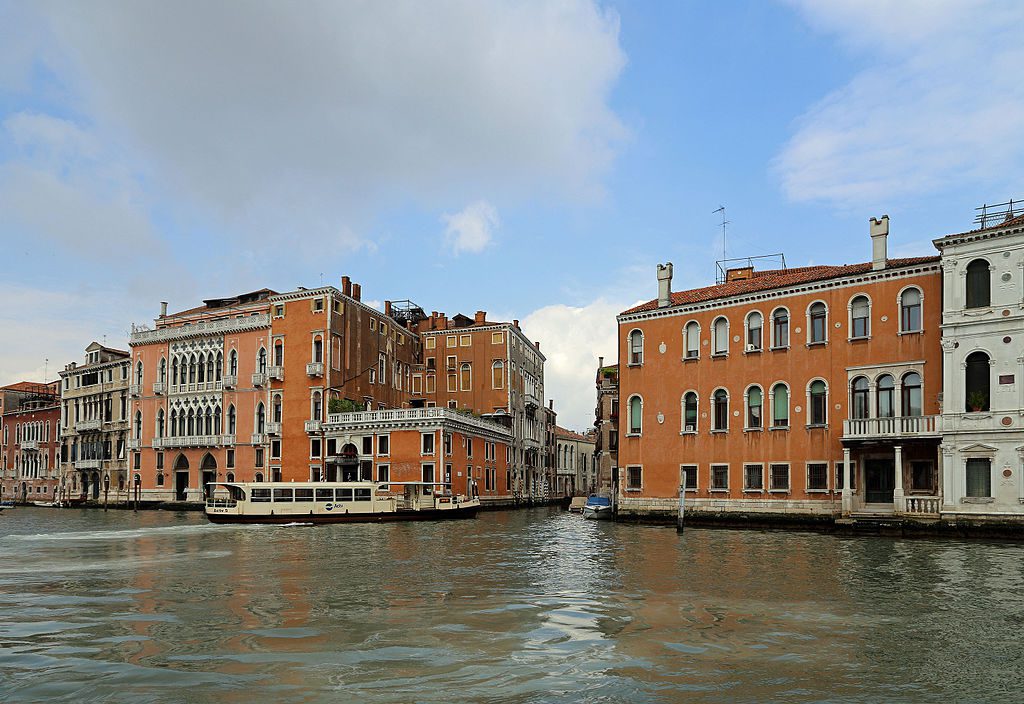The Future of Venice, Why Planes Fly, and the Eloquence of Iris Origo

In The London Review of Books, Claire Hall reviews an account of ancient Greece that argues we regularly misunderstand the past when we view it exclusively through modern lenses: “In essence, Anderson argues that many of the basic principles we rely on when talking about what exists in the world (ontology) and how we know things about the world (epistemology) become meaningless when applied to non-Western and pre-modern cultures. Things we take for granted that don’t apply in these contexts would include the oppositions public/private, nature/culture and sacred/secular, or the idea that the material world is objective, or that the primary way to understand human beings is as distinct individual entities rather than as transient parts of bigger entities such as ‘the family’, ‘the inhabitants of Athens’ or ‘the people’. That we tend to see such categories as ‘natural’ features of the world and not as our own constructs is, according to much of the anthropological and postcolonial literature that Anderson engages with, inherently bound up with the development of colonial modernity in the West. On these grounds, histories of pre-modern cultures that make use of modern Western ontologies fail to capture something essential about the world as it was: shackled to our own ways of understanding, we can, Anderson says, only ever write what amounts to a shadowy prehistory of ourselves. Instead, he argues, we should see democratic Athens as a ‘cosmic ecology of gods, land and people’. Accordingly, he draws on archaeological evidence, inscriptions and mainstream texts – including the court speeches of Lysias, Demosthenes and Lycurgus, the histories of Xenophon and Thucydides, and plays and poems by Euripides, Aristophanes and Pindar – in order to re-examine a number of facets of life in democratic Athens, including the daily activities of men and women, buying and selling, participation in legal cases, and a selection of major festivals and rituals. He throws out much of our familiar vocabulary – terms like ‘the economy’ or ‘government’ – and in doing so is able to draw some quite unexpected new links.
Martin Amis to publish autobiographical novel that will deal with the death of Christopher Hitchens and Amis’s relationship to his father and other writers.
Does Venice have a future? “Venice is a case study in man’s ambivalent relation to his environment—his immemorial quest to conquer his environment, and his subjection to environmental forces he can only hope to mitigate. The republican oligarchy, Norwich wrote, was sensitive to the ecology of the lagoon—whose abundant maritime life has always had an important place in the Venetian diet—and wary of changes that would alter the balance between land and water.”
New research suggests that the Easter Island civilization may have collapsed much later than previously believed: “Archaeologists have long assumed that the ancient society that erected the colossal Moai figures on Chile’s Rapa Nui, better known as Easter Island, collapsed many centuries ago. Now, a new study indicates that the islanders’ civilization was still going strong when Europeans arrived in 1722.”
We still don’t know why planes fly.
Revisiting Iris Origo’s war dairies and eloquent memoir: “Taken separately, Origo’s diaries provide unforgettable reporting of facts on the ground during one of the darkest periods of the twentieth century, while her autobiography is distinguished by its beautiful prose style, its moral and psychological intelligence, and its vivid social history.”
Essay of the Day:
Huey Lewis suffered an acute hearing loss in 2018. Will he ever perform again? Dave Holmes reports in Esquire:
“If you lived through the 1980s, you will understand the strange and special thrill of receiving a concerned voice mail from Huey Lewis. ‘I’m going to see you tomorrow, but I need you to drive real slow,’ Huey tells me, his indelible rasp turned fatherly. ‘There are a couple three days a year when the roads are really bad, man. And you’re in ’em.’
“It’s 5 degrees the next morning when I drive to his ranch, an hour outside Missoula, Montana, on narrow state highways as much ice as road. When I pull in—carefully, as instructed—there he is, a solitary figure standing in the snow, an icon in camouflage, surrounded by snowcapped mountains. This is a place where Huey can do what he likes while he waits to find out whether he’ll have another chance to do what he loves.
“We’re months away from the release of Weather, the first album of original Huey Lewis and the News music since 2001, and Huey doesn’t know if he’ll be able to perform again. Two years ago, he lost the ability to hear amplified music, to find pitch, to sing live. ‘When it’s really bad, I’m completely deaf almost,’ he says. The title Weather was originally a nod to age and to the band’s breakthrough, Sports, but there’s a newer meaning than what we’re used to getting from Huey. It’s possible that with a lot of living still ahead, his last gig is behind him.”
Photo: Vaxholm Fortress
Receive Prufrock in your inbox every weekday morning. Subscribe here.
Comments